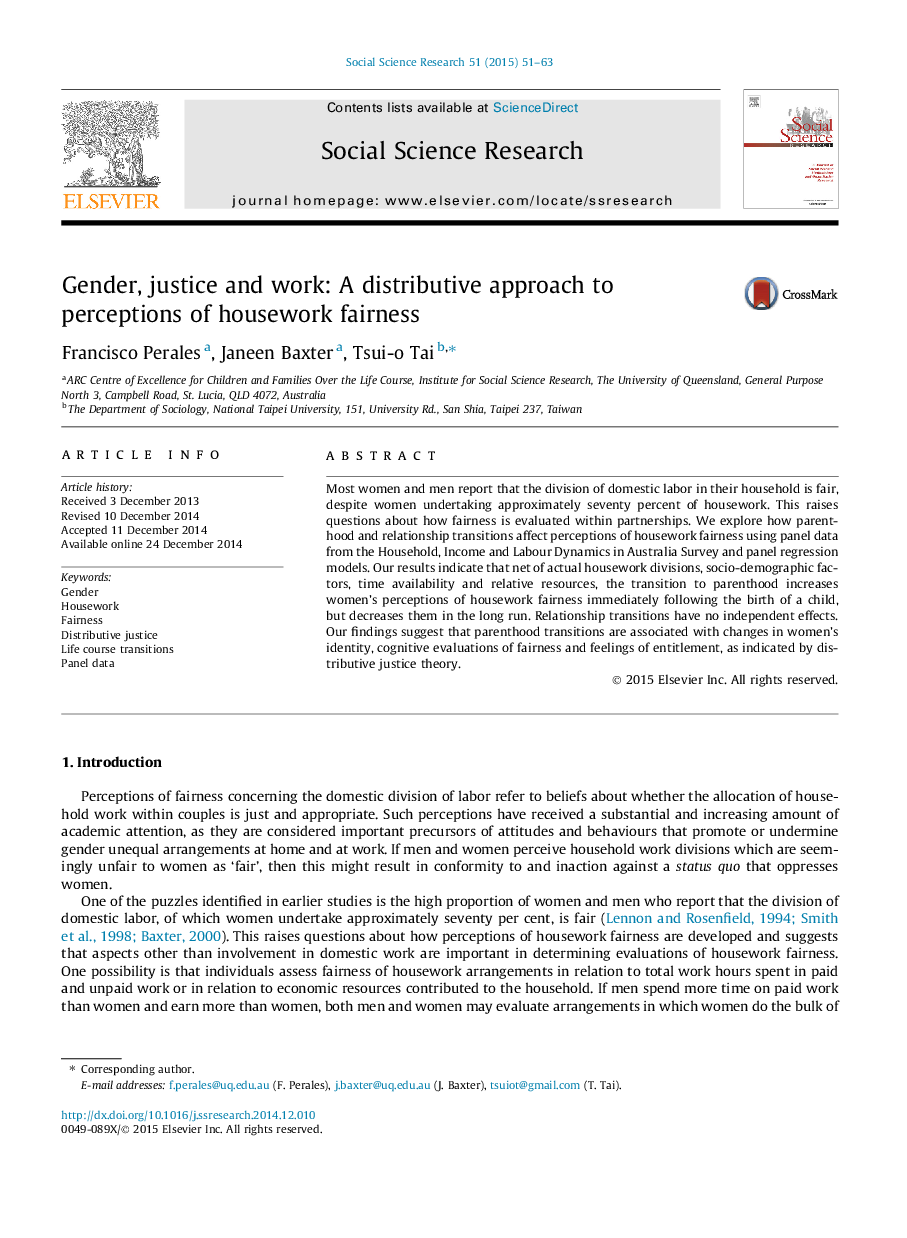| Article ID | Journal | Published Year | Pages | File Type |
|---|---|---|---|---|
| 955734 | Social Science Research | 2015 | 13 Pages |
•We examine changes in perceptions of housework fairness across life transitions.•We use Australian panel data from the HILDA Survey and fixed-effect models.•We find significant changes across parenthood but not relationship transitions.•Changes in objective factors explain only a portion of the observed effects.•We attribute the remaining effects to distributive justice mechanisms.
Most women and men report that the division of domestic labor in their household is fair, despite women undertaking approximately seventy percent of housework. This raises questions about how fairness is evaluated within partnerships. We explore how parenthood and relationship transitions affect perceptions of housework fairness using panel data from the Household, Income and Labour Dynamics in Australia Survey and panel regression models. Our results indicate that net of actual housework divisions, socio-demographic factors, time availability and relative resources, the transition to parenthood increases women’s perceptions of housework fairness immediately following the birth of a child, but decreases them in the long run. Relationship transitions have no independent effects. Our findings suggest that parenthood transitions are associated with changes in women’s identity, cognitive evaluations of fairness and feelings of entitlement, as indicated by distributive justice theory.
